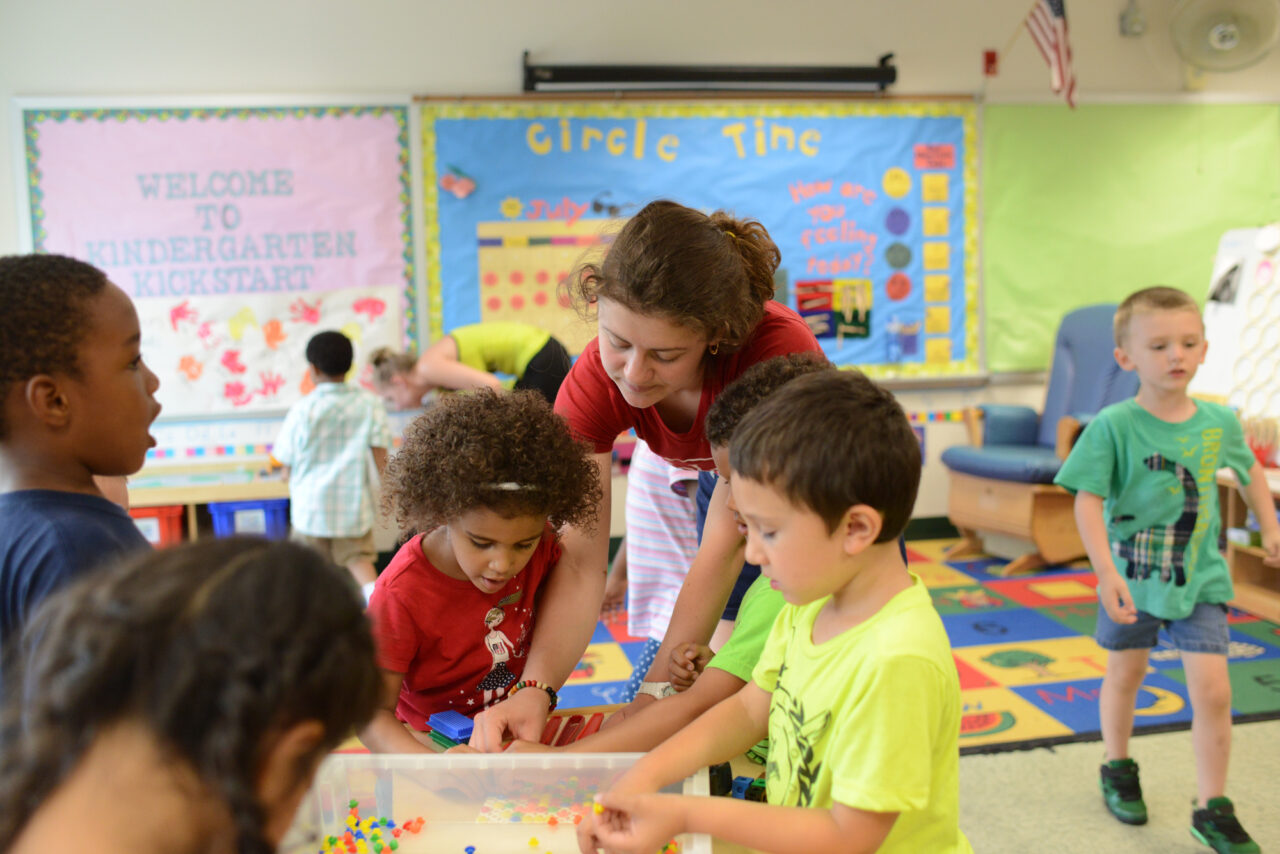New Program to Improve Preschool Numeracy

The first time Anna Shusterman walked into a classroom of Wesleyan undergraduates teaching math games to preschoolers a decade ago, she was surprised by what she saw – happy and deep engagement all around.
The students – all of them – were on to something. “They were incredible. I had no idea how good they were,” said Shusterman, professor of psychology and co-chair of the College of Education Studies.
Between the joyful (and productive) little ones and the thoughtful efforts of the Wesleyan students, Shusterman realized that there was a need that could be filled. “It turned out to be much more interesting than I anticipated,” she said.
Shusterman and her students are taking math games they’ve developed and bringing them to 50 preschool classrooms in communities like Middletown, Hartford, New Haven, Bristol, and Manchester. She is in the process of teaching undergraduates from Wesleyan, Trinity, and the University of Hartford how to be “math ambassadors.” The group will then fan out across the state twice a week through April to implement the program, which has the goal of increasing children’s aptitude for math and science learning.
“There isn’t a lot of activation of early math skills, which is really important,” Shusterman said. “Nobody has the time to fully understand the research and make the curriculum. This is a gap in early childhood education.”
The process started ten years ago, when Shusterman’s first NSF grant included a workshop for undergraduates to study the basic cognitive science of how children learn number concepts and turn the research into games for children. The project has grown over time, and three years ago, Shusterman received a $1.8 million grant from the National Science Foundation to begin a study in public and private preschool classrooms across Connecticut exploring how teachers can use activities with young children to develop their knowledge of numbers and other core mathematical concepts.
The first year of the grant dealt with finalizing the design of the games and developing a strategy to roll them out to classrooms. In the second year Shusterman and her team trained early childhood teachers around the state. “Teachers have been clear that they wanted something much more inviting and engaging” to support children’s numeracy, Shusterman said.
That’s where the math games come in. Hopefully, the right type of math games can help children acquire numeracy through engagement. The materials can be used in two ways, she said – a low guidance, more relaxed style, and a high guidance, more intentional style. Low guidancerefers to games primarily run by the children who play them. High guidance activities are led by a teacher, with very specific instruction and outcomes. “We are hoping that the right games can help children learn a lot through discovery and engagement,” Shusterman said.
Shusterman and her students have designed and manufactured 10 colorful and engaging educational games. One of the games, “Math Bus,” involves cute finger puppets and a toy bus. “Forest Friends” is an outdoor-themed counting board game, with artwork by Wesleyan student Leah Levine ‘23. “If you come into my lab, it looks like a toy factory,” she said.
Don’t be fooled by the cutting and pasting going on in Shusterman’s lab. The committed Wesleyan students who have worked on the project have gone on to do important work in the field of education studies. Some have PhDs and are continuing to collaborate with Shusterman to research methods of improving numeracy.
But, for right now, Shusterman’s goal is that the math games will become part of a well-stocked preschool environment alongside an outdoor place to play, a little library, building blocks, and puzzles. “Our goal is to have materials, that they know how to use, waiting for them in their classrooms, that will, inch by inch, increase their math skills,” Shusterman said.

